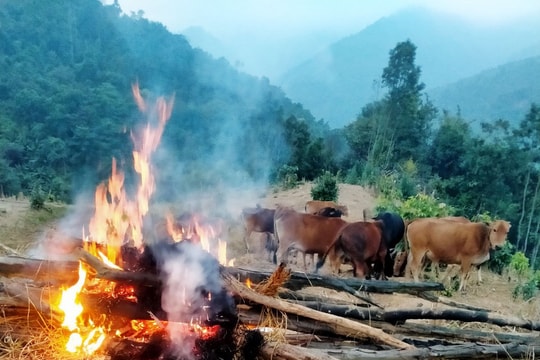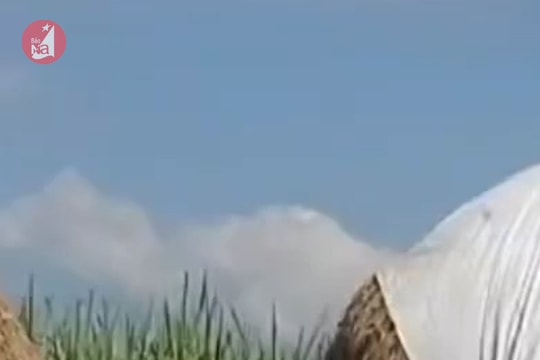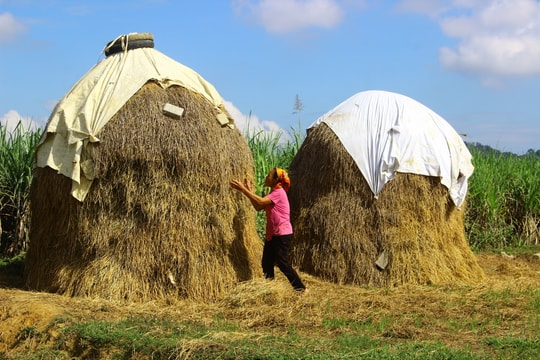Cross-border buffalo and cow trading village in Nghe An
For a long time, the trading of buffalo and cows has only focused on the U market, but due to the increasing demand for buying and selling, people in Dai Son commune, Do Luong district (Nghe An) have formed additional buffalo and cow trading points in residential areas. Buffalo and cows are mainly "hunted" from Laos and Thailand every day and then sold everywhere.
U market in Dai Son commune is where people from all over trade buffaloes and cows. Previously, the market held 6 sessions every month on the 1st, 6th, 11th, 16th, 21st, and 26th of the lunar calendar. Each session had thousands of buffaloes and cows being bought, sold, and exchanged by people. However, now, due to the high demand, the trading of buffaloes and cows no longer depends on the market session, but many points of collection, purchase, sale, and transfer of buffaloes and cows take place every day in the hamlets near U market.
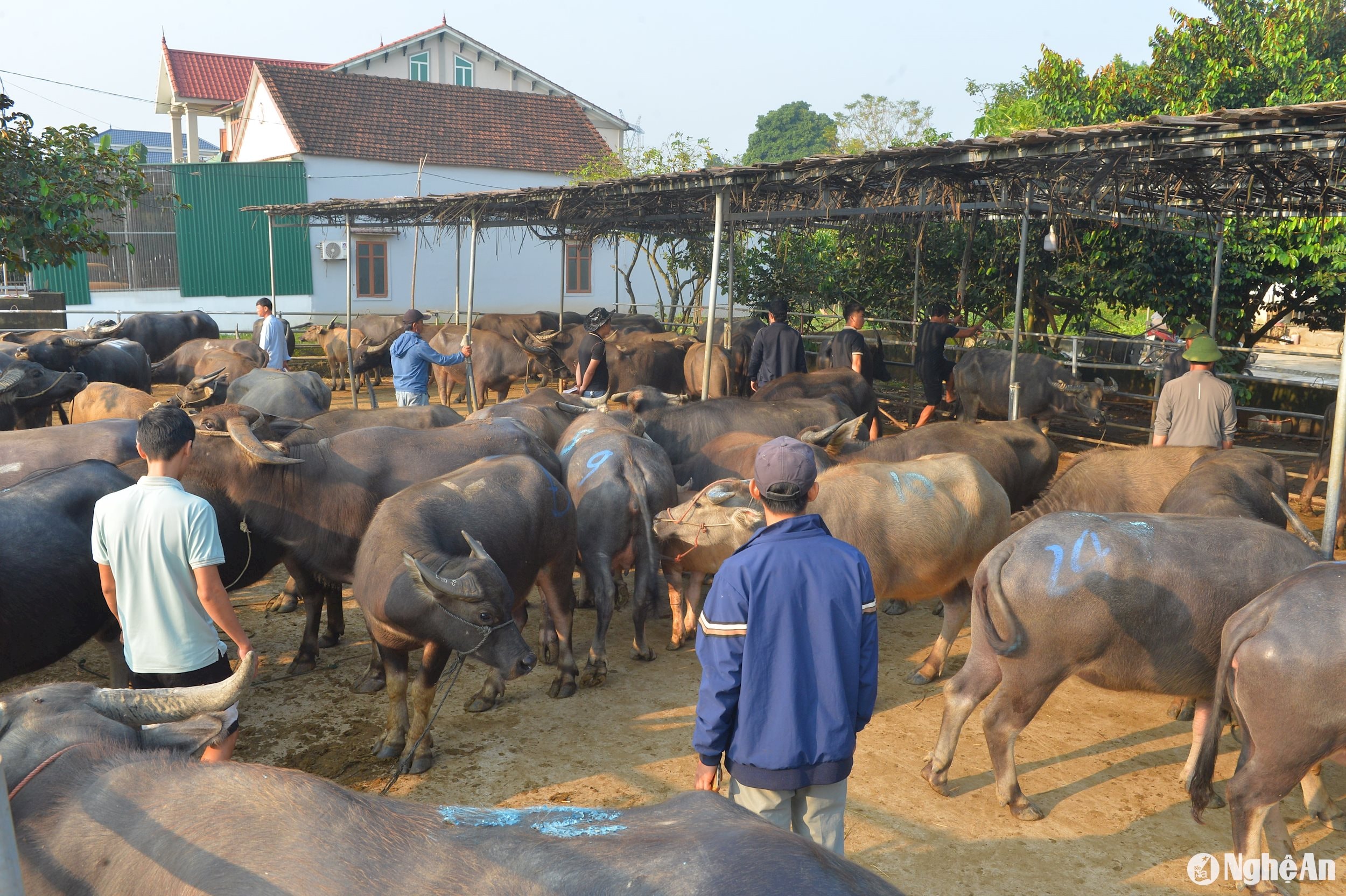
Present at hamlet 3, Dai Son commune in the first days of November, from early morning, along the central road of the commune, cars from all over were bustling, carrying thousands of "foreign" buffaloes and cows to gather here. The large buffalo and cow gathering points were surrounded by walls. Buyers could stand outside the fence to see the buffaloes and cows, or could go inside the barn to "witness". Buying and selling of buffaloes and cows here took place all day, from 5am to 5pm, with buyers and sellers always crowded.
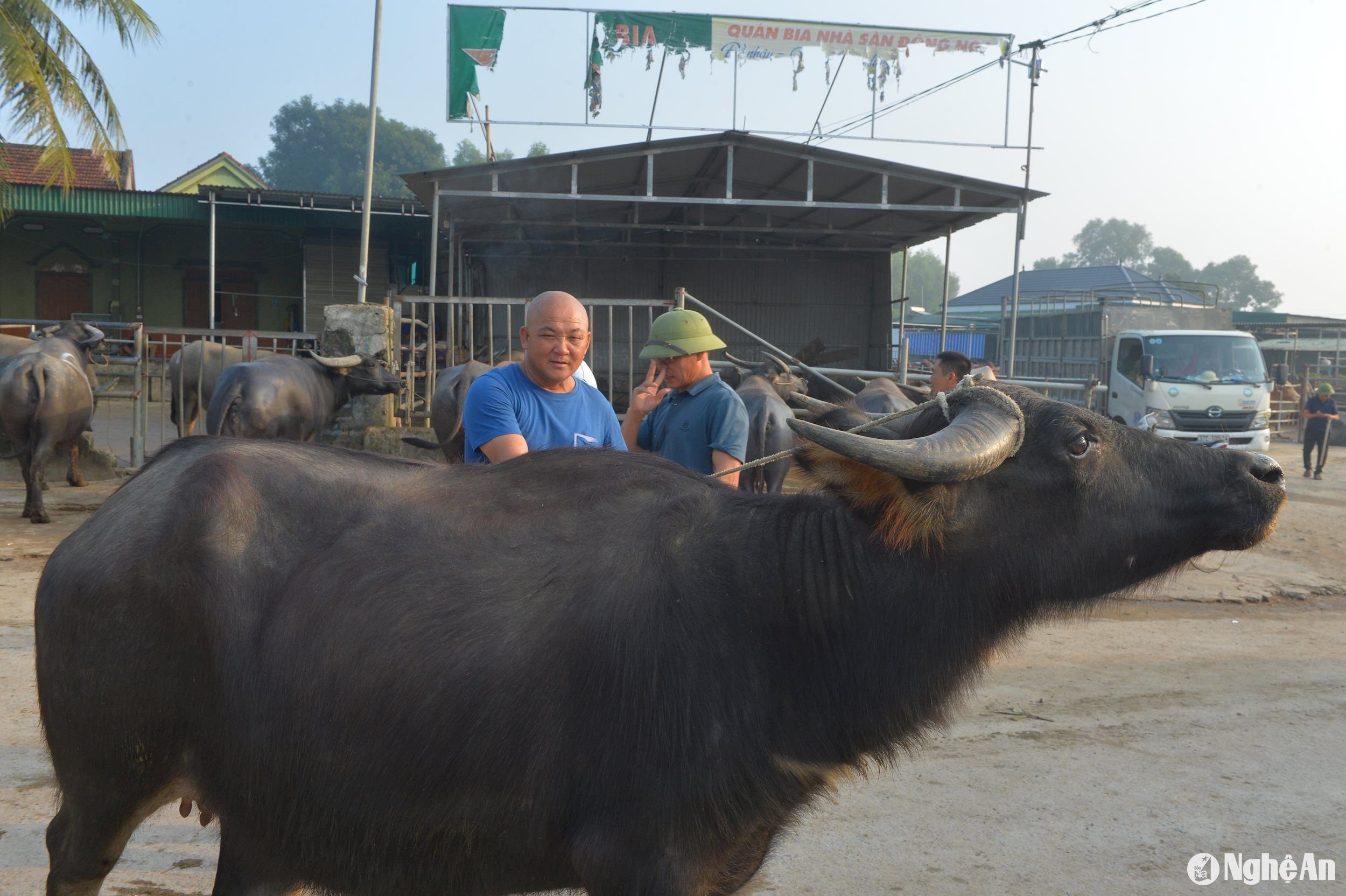
Mr. Ho Sy Nam in Hamlet 2, Dai Son Commune, owner of a facility specializing in collecting buffaloes and cows, said: Every day, we work together with brokers to collect 200-300 buffaloes and cows from all over, mainly Laos and Thailand, bring them here to sell all day to customers in the district, province and export to China. Depending on the weight of each buffalo or cow, the selling price is usually from 10-13 million VND. All buffaloes and cows purchased are quarantined by health agencies, trucks and barns are fully disinfected.
According to the owners of facilities specializing in collecting buffalo and cows, it is known that: To purchase a large amount of buffalo and cows, "transacting" thousands of them every day, in Dai Son commune there is an army of hundreds of workers who specialize in "hunting" buffalo and cows from everywhere. The traders have to travel for many days in the highland villages in the province and in Laos and Thailand to choose and buy buffalo and cows and then bring them to Dai Son commune.
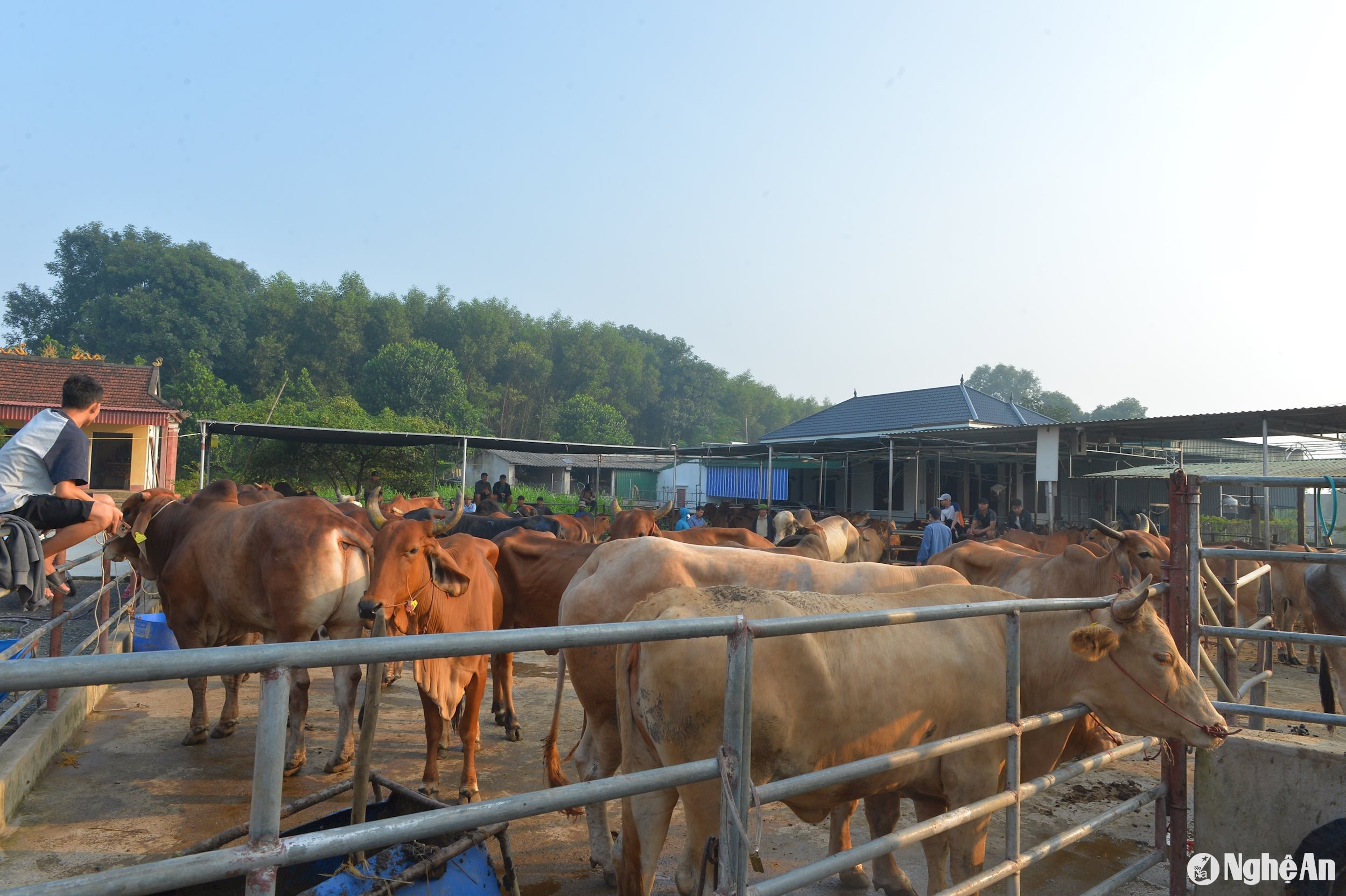
In addition to choosing healthy buffaloes and cows, it is also necessary to choose ones that are tall, long, easy to butcher, and easy to sell. Thanks to this profession, many workers in Dai Son commune have stable jobs and improve their lives. The "workers" who collect buffaloes and cows earn 20-25 million VND/person/month.
Mr. Nguyen Canh Lam - Chairman of Dai Son Commune People's Committee, said: The whole commune currently has over 600 households trading buffalo and cows, of which 350 households trade professionally, this is also a profession that helps local people get rich.
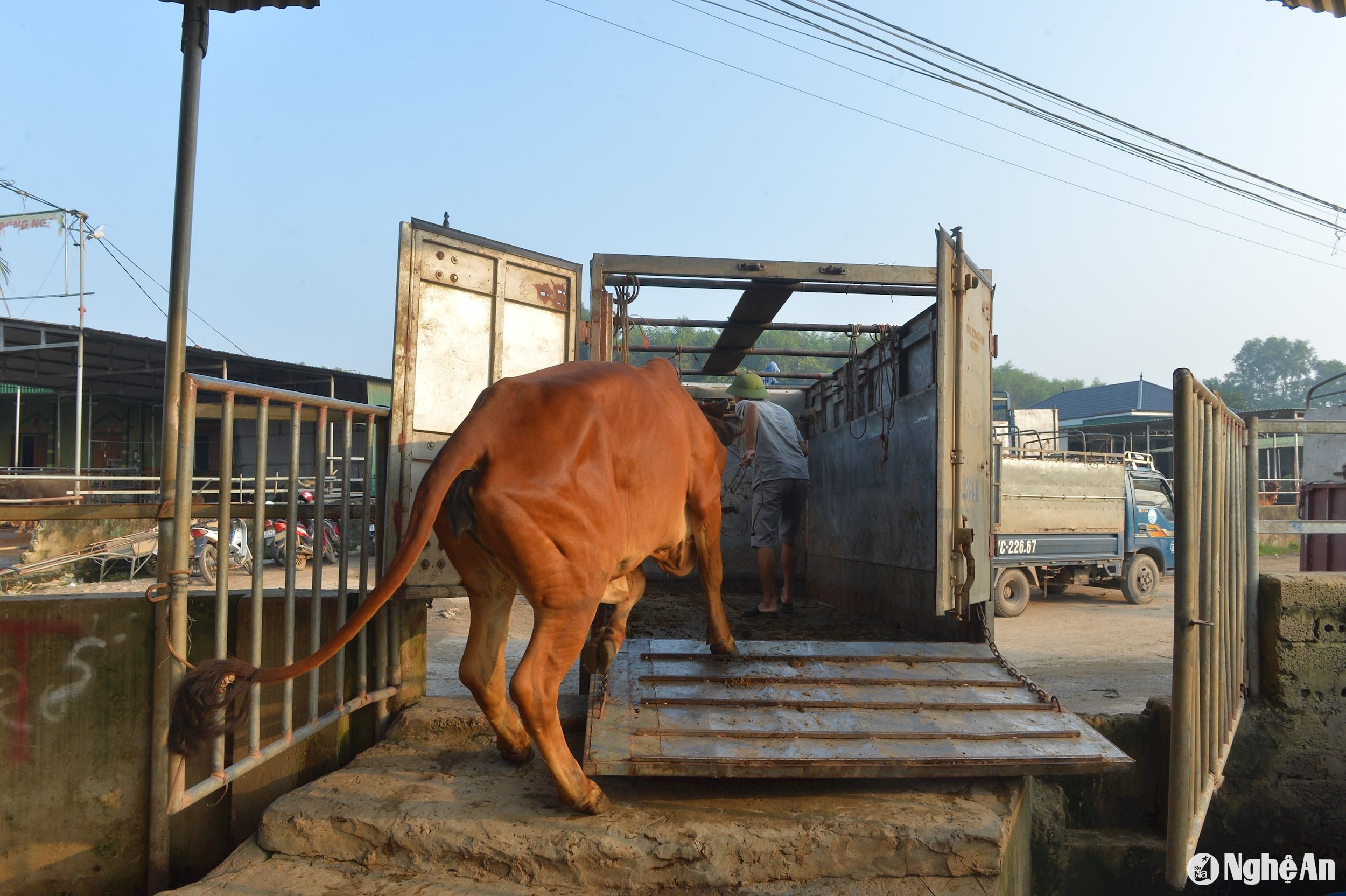
In addition to the buffalo and cow trading at the U market, the commune also has about 70 large-scale barns built by local people for "brokers" to rent to "collect" buffalo and cows from Laos and Thailand and trade and exchange every day without waiting for the U market. These collection facilities also bring in a large income, if favorable, some collection facilities can earn over 200 million VND/month.
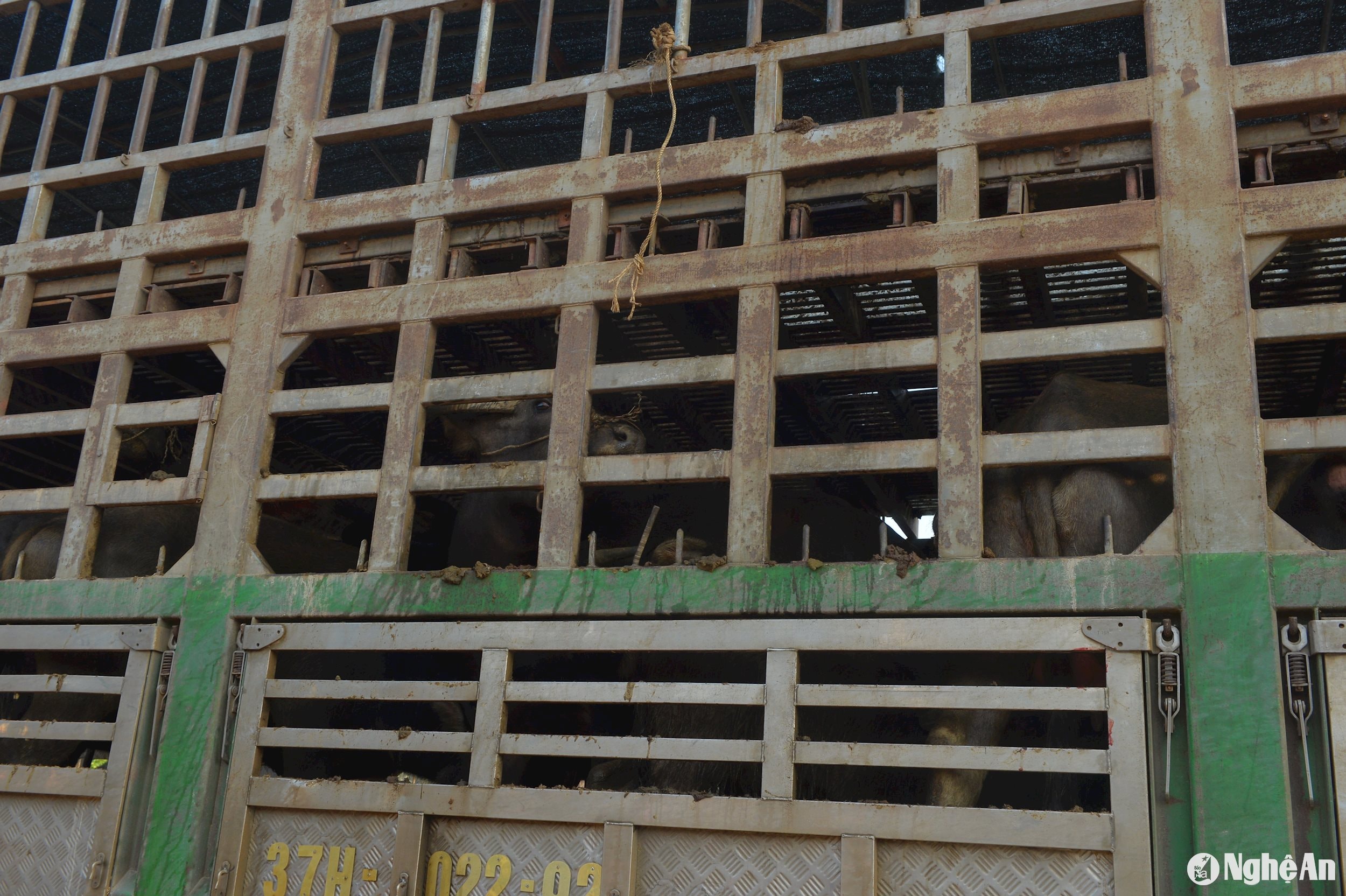
After purchasing enough quantity, the wholesalers will rent vehicles to transport them domestically and internationally. In addition, many households directly trade in buffaloes and cows, herd, care for them, and rent out barns. Many households also buy buffaloes and cows to fatten and resell. According to calculations, raising them for about a month will bring in a profit of 2-3 million VND/head.
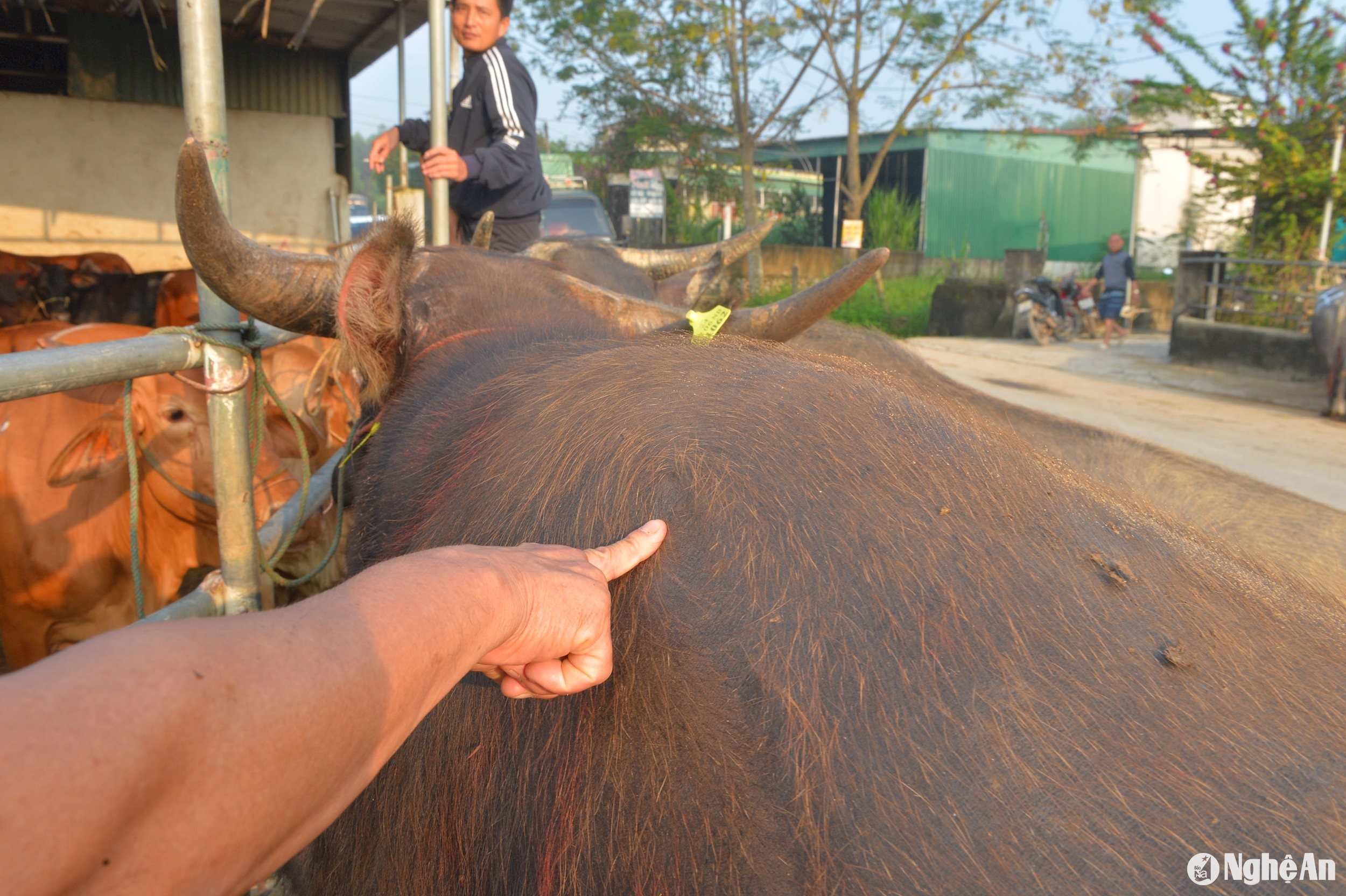
The buffalo and cow trading profession in Dai Son commune, Do Luong has created jobs and increased income for many local people. However, Dai Son commune needs to regularly coordinate with specialized agencies to inspect and monitor disease prevention, as well as environmental sanitation in the areas where buffalo and cows are collected.

